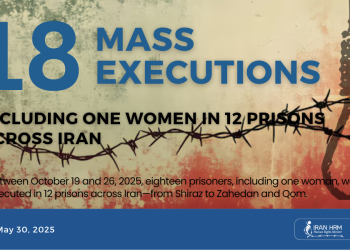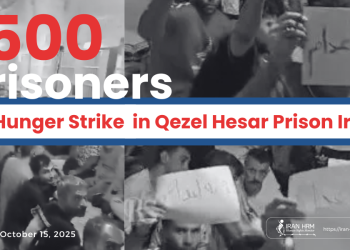In the early hours of Wednesday, June 25, 2025, three security prisoners—Azad Shojaei, Edris Ali, and Rasoul Ahmad Mohammad—were executed in Urmia Central Prison. These individuals, previously detained by the Islamic Republic’s security forces, were sentenced to death on charges of “importing terrorist equipment” and “collaborating with the hostile regime of Israel.” These charges have been widely criticized as baseless and appear to have been secured through torture and forced confessions.
Arrest and Torture: The Beginning of an Opaque Case
Azad Shojaei, a 32-year-old kolbar (border porter) from Duleh Germeh village in Sardasht County, was arrested alongside two others in July 2023 and immediately transferred to the Intelligence Ministry’s security detention center in Urmia. The detainees were held in solitary confinement for months, denied family visits, and had no access to legal counsel. According to informed sources, the prisoners endured severe physical and psychological torture. Relatives of Shojaei report that this torture coerced confessions, which became the primary basis for the death sentences handed down by the court.
An Opaque Court and Unlawful Verdict
In October 2023, the Revolutionary Court of Urmia, presided over by Judge Ghorban Shahini, sentenced all three defendants to death solely based on these coerced confessions. Reports indicate that none of the accused were allowed to choose their own lawyers, and their defense statements were conducted under the supervision of security agents. Subsequently, the Supreme Court upheld the verdicts without adequately addressing the legal flaws in the case. Court-appointed attorneys were ineffective in filing appeals or providing independent defense, leaving the defendants without meaningful legal recourse before their execution.
Security Narratives and Forced Confession Videos
Edris Ali, another defendant and kolbar in the border regions, was arrested with seven other kolbars, five of whom were released on bail. Edris Ali and two others remained detained and were reportedly subjected to torture. Intelligence agents forced him to recite a scripted confession on camera, promising release in exchange for cooperation. These videos were later used as evidence in court and contributed directly to his death sentence.
Judiciary Silence and International Concern
In November 2024, judiciary spokesperson Asghar Jahangiri announced the arrest of several individuals on espionage charges under the pretext of kolbari, yet failed to disclose the identities of the detainees or provide details about their judicial proceedings. This lack of transparency has heightened concerns among domestic and international human rights organizations, which fear that this case, like many before it, was plagued by serious human rights violations, including denial of due process and use of torture.







